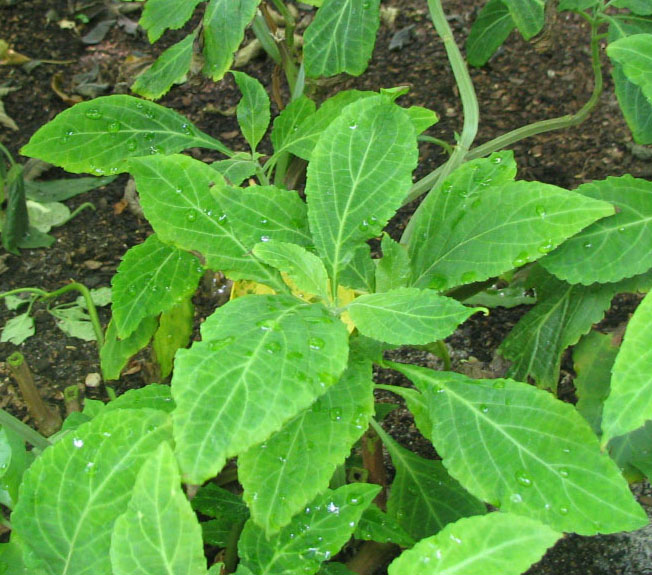Salvia: Difference between revisions
Llarpiwhal (talk | contribs) m |
|||
| Line 9: | Line 9: | ||
The drug was first discovered in the Western world by R Gordon Wasson, a widely renowned botanist brought the plant back from Mexico as an object of scientific research - witnessing the plant being used in a similar manner to mushrooms in shamanic religious practice. It remained in relative obscurity until the 90s, at which time Western psychedelic exploration of the plant began. | The drug was first discovered in the Western world by R Gordon Wasson, a widely renowned botanist brought the plant back from Mexico as an object of scientific research - witnessing the plant being used in a similar manner to mushrooms in shamanic religious practice. It remained in relative obscurity until the 90s, at which time Western psychedelic exploration of the plant began. | ||
Now, due to the Internet, the drug is widely available on the Internet and many users partake in the drug | Now, due to the Internet, the drug is widely available on the Internet and many users partake in the drug recreationally. | ||
== Dosage == | == Dosage == | ||
Latest revision as of 17:33, 3 June 2018

Salvia Divinorum is a plant of the genus Salvia, which is psychoactive and known to induce intense and dysphoric hallucinatory experiences. It can either be smoked or taken sublingually, though the former is preferred by most users. Many of the users do not consider the drug to have much 'recreational' potential, due to the intense and often scary experience it yields - however it has seen value as a tool for spiritual use.
History
The plant was originally endemic to the Sierra Madre mountains in Mexico, and has a long history of having been used by the Mazatecs for shamanic healing rituals - entering a shamanic state of consciousness using the substance to divine a patient's illness in the spirit world by integrating the plant into a tea preparation called "yerba de Maria."
The drug was first discovered in the Western world by R Gordon Wasson, a widely renowned botanist brought the plant back from Mexico as an object of scientific research - witnessing the plant being used in a similar manner to mushrooms in shamanic religious practice. It remained in relative obscurity until the 90s, at which time Western psychedelic exploration of the plant began.
Now, due to the Internet, the drug is widely available on the Internet and many users partake in the drug recreationally.
Dosage
The doses for salvia vary wildly depending on the quality of the plant or extract. It is typically smoked in dried leaf form, while taken sublingually either as dried or fresh wet leaf. Salvia extracts are also commonly available, generally coming in 5x, 6x, 10x and even 20x concentrations - though the extraction process tends to lose a bit of the potency and therefore doses will not be accurately comparable with fresh product.
| Threshold | 0.2g+ |
| Common | 0.4g+ |
| Heavy | 0.5g+ |
| Threshold | 10g+ |
| Common | 30g+ |
| Heavy | 50g+ |
| Threshold | 2g+ |
| Common | 5g+ |
| Heavy | 10g+ |
Duration
| Onset | 20-60 seconds |
| Total | 5-15 minutes |
| After-effects | 20-40 minutes |
Effects
Postive
- Radical shift in perspective and perception
- Increase in sensual activity
- Introspective insight
- Powerful open/closed eye visuals
- Change in consciousness
Neutral
- Dissociation
- Perspiration
Negative
- Dysphoria
- Ataxia
- Dizziness
- Amnesia
- Nausea
Harm Reduction
- Due to the ataxia and loss of body control, it is recommended to position yourself in a way that you will not aspirate during the experience (though vomiting from salvia is not a common occurrence).
- It is generally recommended to use a sitter while ingesting salvia, due to the mental intensity of the experience or potential for injury while in dysphoric state.
Potentiators
Users have reported an elongation and potentiation of the effects of the drug through using a MAOI such as Syrian Rue.
Interactions
Chemistry and Pharmacology
The primary psychoactive constituent of salvia divinorum is a diterpenoid called salvinorin A, which is a potent k-opioid and d2 receptor agonist. Due to these properties, it has seen research indicating the drug may be of use as a treatment for opioid addiction - as well as providing research opportunities for the potential treatment of perception-altering diseases such as schizophrenia or Alzheimer's.
Legal status
Salvia is legal in most countries, since its tendency to disable users and chemical safety mean that while users may not have a pleasant experience, it is very difficult to cause damage through physical or accidental means.